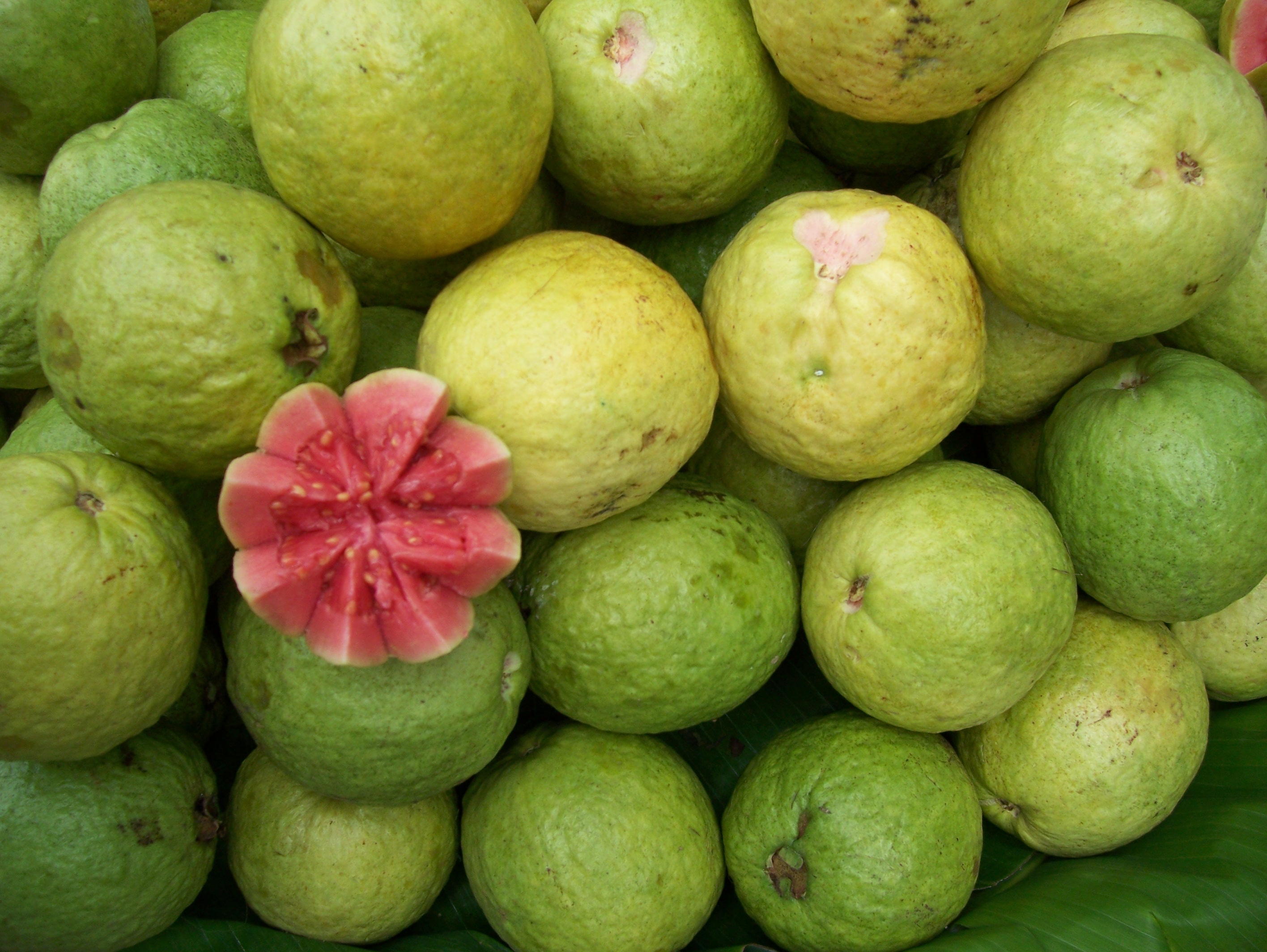 |
| Guavas on sale in Bangalore (Source: Wikipedia) |
The claim is based on a study that evaluated 'the amount of natural antioxidants level of [sic] 14 fresh fruits commonly consumed in India'. The article cited the study that was published in Food Research International, an Elsevier journal. But surprisingly when I looked up the paper it appeared that the results of the study were published in May 2010!
Antioxidants have been featured as a healthy choice for a long time. An article in Slate mentions that the story began in the 1940s when Denham Harman proposed that 'the same free radicals that were cutting into petroleum industry profits could also simply and completely explain the phenomenon of aging. Better yet, he said, their effects could be ameliorated by something called antioxidants'.
As tempting as the theory seems, unfortunately as the same article points out, there is no evidence of antioxidants inducing any health benefits. Instead, a meta-analysis of studies that assess the effect of antioxidant supplements on mortality showed that 'treatment with beta carotene, vitamin A and vitamin E may increase mortality. The potential roles of vitamin C and selenium on mortality needs further study.'
Having previously read the article in Slate, when I came across the article in TOI it struck me as odd that a 18-month old research paper suddenly seemed to surfaces in not only Indian newspapers but also in a British and a Malaysian newspaper within 24 hours. I got in touch with the lead researcher on the paper, Dr. Sreeramulu, congratulating him and expressing my surprise. He responded quickly and said, "Yesterday they contacted me about the work (and) today (the) article appeared in Times of India. (In the) morning my friend informed me about this." I also, asked him who funded his research, to which he said, "I am a regular staff member of NIN (National Institute of Nutrition), Hyderabad. Our Institute funded the work as (an) intramural project."
I asked him about the funding of the project given that the antioxidant market worldwide is pretty big. According to a report it has been growing at ~4% annually with reported sales of $3.7 billion in 2007 (the slate article calls it a $23 billion industry but I couldn't find the source for that). Having not got any satisfactory answer to the reason why TOI showed sudden interest, I thought it might be worth looking at what the coverage of antioxidants in top Indian newspapers.
Here are the search results for 'antioxidants' on TOI, Hindustan Times & The Hindu websites.
Sure enough I got plenty of articles mentioning the many studies that show antioxidants do wonderful things and many that reported the extraordinary antioxidant content in some foods. But amongst all that noise I found only three articles that mentioned studies showing adverse effects or no effects (here, here & here).
The lack of coverage of the studies showing adverse effects or no effects can be attributed to the fact that may be fewer such studies are reported but that would be a mistake. That alone cannot account for the dismal numbers. The answer then may be lies in the fact that the media has a bias towards publishing 'feel-good' stories, especially in the health section. But it might also be equally due to some media houses doing favours for big supplements manufacturers.
I wouldn't lament about all this much if only next time when an article about antioxidants is written they give the reader a balanced view. A simple sentence such as, 'conventional wisdom claims the positive effects of antioxidants but many studies have shown no-effect and in some cases, harmful effects in the use of antioxidants' can be included to that effect.
Alas! I cannot expect such things from Indian newspapers, can I?
And, of course, the mystery of why world media suddenly showed in the story also remains unsolved.

















